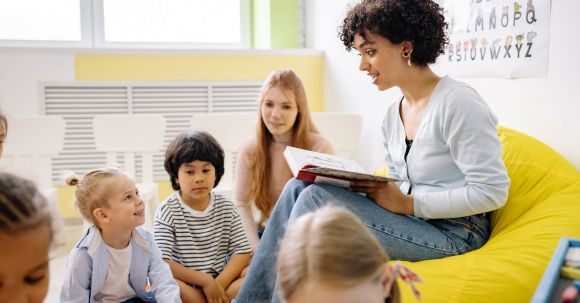Teaching children about environmental responsibility is crucial in today’s world. With the increasing threats to our planet, it is important for children to understand the impact of their actions and develop sustainable habits from a young age. By educating children about environmental responsibility, we can empower them to become responsible global citizens and protect the planet for future generations. Here are some effective ways to teach children about environmental responsibility:
1. Lead by example:
Children often learn by observing their parents and caregivers. Therefore, it is important for adults to model environmentally responsible behaviors. Simple actions like recycling, conserving energy, and reducing waste can have a significant impact on children’s understanding of environmental responsibility.
2. Engage in hands-on activities:
Children learn best through experiential learning. Engage them in hands-on activities that promote environmental responsibility, such as planting trees, starting a home garden, or participating in community cleanups. These activities not only teach children about the importance of taking care of the environment but also foster a sense of ownership and connection to nature.
3. Use age-appropriate resources:
When teaching children about environmental responsibility, it is important to use age-appropriate resources. Books, videos, and interactive websites designed for different age groups can help children understand complex environmental concepts in a fun and engaging way. Choose materials that are visually appealing and use language that is easy for children to comprehend.
4. Foster a love for nature:
Encourage children to spend time in nature and develop a love for the environment. Take them on hikes, camping trips, or visits to local parks and nature reserves. Teach them about the different plants, animals, and ecosystems they encounter, and explain the importance of preserving these natural habitats. By fostering a love for nature, children will be more motivated to protect it.
5. Teach the concept of reduce, reuse, recycle:
The mantra of “reduce, reuse, recycle” is a fundamental concept in environmental responsibility. Explain to children the importance of reducing waste, reusing materials, and recycling whenever possible. Encourage them to think critically about their consumption habits and find creative ways to repurpose items instead of throwing them away. By instilling these principles early on, children will develop sustainable habits that can make a significant difference.
6. Discuss the impact of pollution:
Children need to understand the negative impact of pollution on the environment and human health. Discuss the different types of pollution, such as air pollution, water pollution, and plastic pollution, and explain how these affect ecosystems and wildlife. Encourage children to brainstorm ways they can help reduce pollution, such as using eco-friendly products, conserving water, and advocating for cleaner energy sources.
7. Involve children in environmental projects:
Engaging children in environmental projects can be a powerful way to teach them about responsibility and the importance of collective action. Encourage them to participate in school or community initiatives, such as recycling programs, tree-planting campaigns, or environmental awareness campaigns. This hands-on involvement will give children a sense of empowerment and inspire them to take action in their own lives.
In conclusion, teaching children about environmental responsibility is essential for creating a sustainable future. By leading by example, engaging in hands-on activities, using age-appropriate resources, fostering a love for nature, teaching the concept of reduce, reuse, recycle, discussing the impact of pollution, and involving children in environmental projects, we can empower them to become responsible stewards of the planet. Let us invest in the education of our children and inspire them to make a positive impact on the environment.
